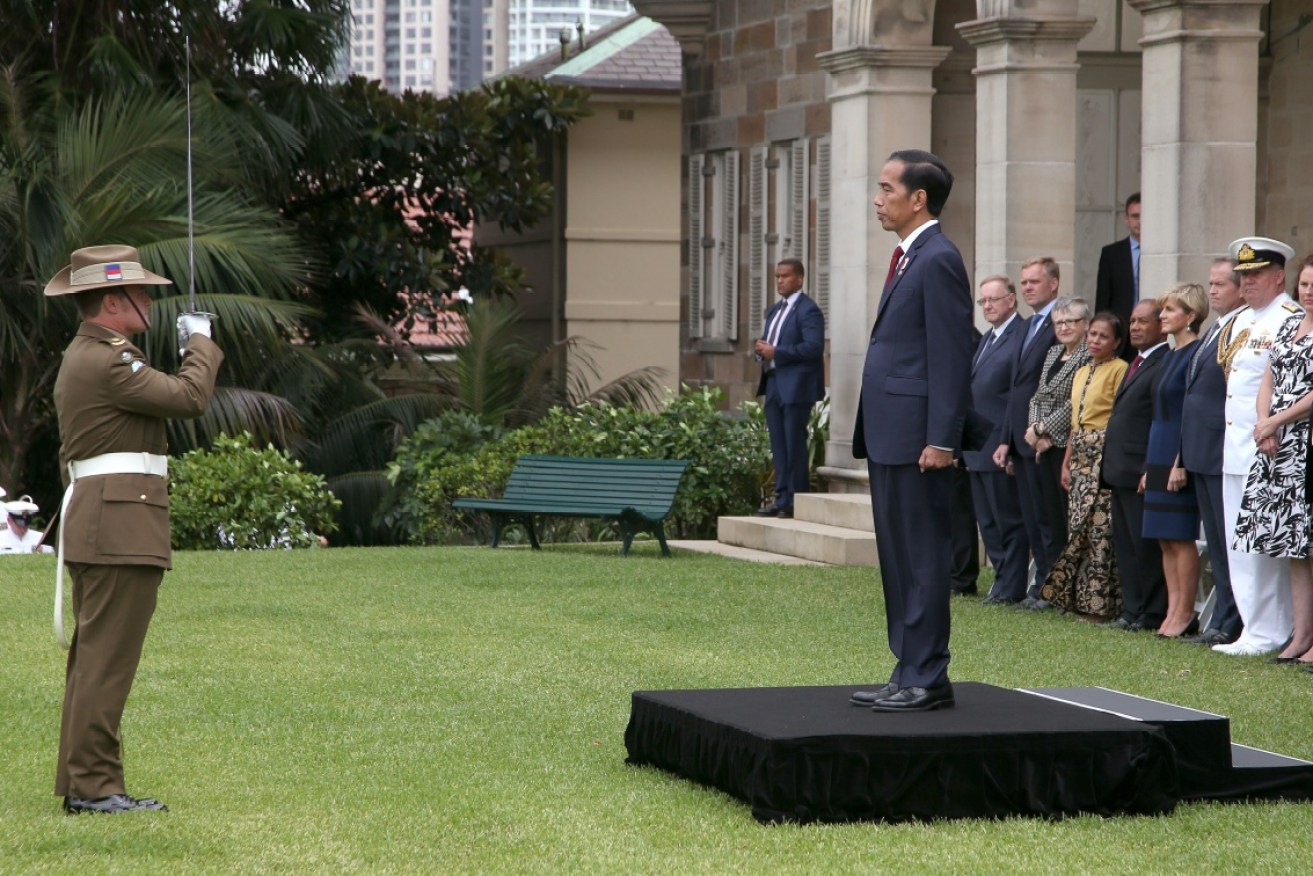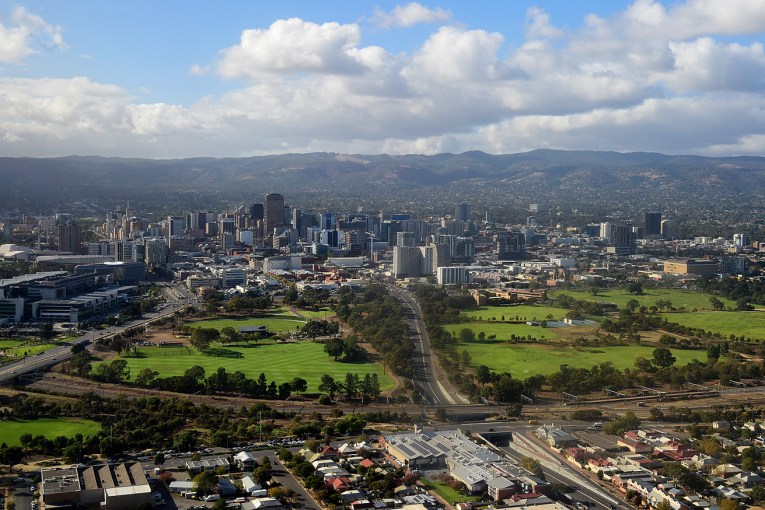The surprising facts about Australia-Indonesia trade


Indonesian president Joko Widodo in Sydney last year. Photo: Getty
This week Australia’s new prime minister Scott Morrison will travel to Indonesia to put the final touches to a trade deal between the two neighbouring nations.
It’s being billed as a major moment in Australian-Indonesian economic relations, but many (if not most) Australians are probably feeling in the dark about what it means, or if it even matters.
So a day before the talks commence, The New Daily took a dive into the matter and found some surprising facts.
Most surprising, perhaps, is that while Indonesia is our closest major neighbour, economic ties between the two nations are positively minuscule.
Despite being right on our doorstep, and despite being the fourth most populous country in the world with more than a quarter of a billion people, Indonesia is only our 14th biggest trading partner.
Just $7 billion worth of Aussie goods – or 2.3 per cent of total exports – found their way to Indonesia last year. That’s the same as we sent to New Zealand, a country with one-55th the population of Indonesia.
Why is it so low? The temptation may be to blame our difficult political and cultural relationship, but the facts tell a different, more straightforward story: We simply don’t produce much of what Indonesia needs, and vice versa.
Indonesia is already rich in Australia’s biggest two exports: iron ore and coal. Those two commodities make up 36 per cent of Australia’s total exports. Add gas and gold, and you’re at 50 per cent.
In other words, if you don’t need those commodities, you’re unlikely to be a major trading partner of Australia.
Our biggest export to Indonesia is wheat, followed by crude petroleum, and live animals (mostly cattle). Indonesia’s biggest exports to Australia are petroleum, wood and footwear.
So what will the deal include?
The Australian government says the trade deal will address impediments to trade of goods between the two countries, impediments to exchange of services, and impediments to investment.
It also has the somewhat cryptic goal of “economic co-operation”, which it says “will assist in the implementation of the agreement, support trade facilitation and provide a pathway for future liberalisation”.
Matthew Busch, nonresident fellow at the Lowy Institute, told The New Daily live cattle exports were likely to be a part of the agreement – possibly with a reduction in red tape for Australian exporters.
One of the biggest areas, though, is likely to be allowing more education exchange – particularly making it easier for Australian universities to open campuses in Indonesia.
This is a model that has worked well in other Asian countries, and Indonesian President Joko Widodo has expressed interest in the idea.
In return, he predicted Indonesia would want Australia to make it easier for Indonesian workers to work in Australia – a politically popular outcome that would also have the benefit of increasing remittances (that is, Australian-earned dollars sent back to Indonesia).
“The deal is important, but not necessarily for the reasons being advertised,” Mr Busch said.
“It’s being advertised as a deal to get economic relations to the next level. But the complementarities of the economies are not incredible.”
The fundamental value, he said, would come in building stronger ties. While close neighbours, culturally, economically and religiously he said the two countries are poles apart, and this would inevitably lead to conflicts flaring up from time to time.
“Indonesia and Australia will be neighbours forever more. To do anything that allows for progress on a bilateral basis is a positive thing. So when these difficult issues inevitably arise – whether they be people trafficking, drug trafficking or trade disputes – the more there is to fall back on to get through that, the better.
“I don’t think Indonesia is going to jump up the list of Australia’s most valuable trading partners, but I could be wrong.”








